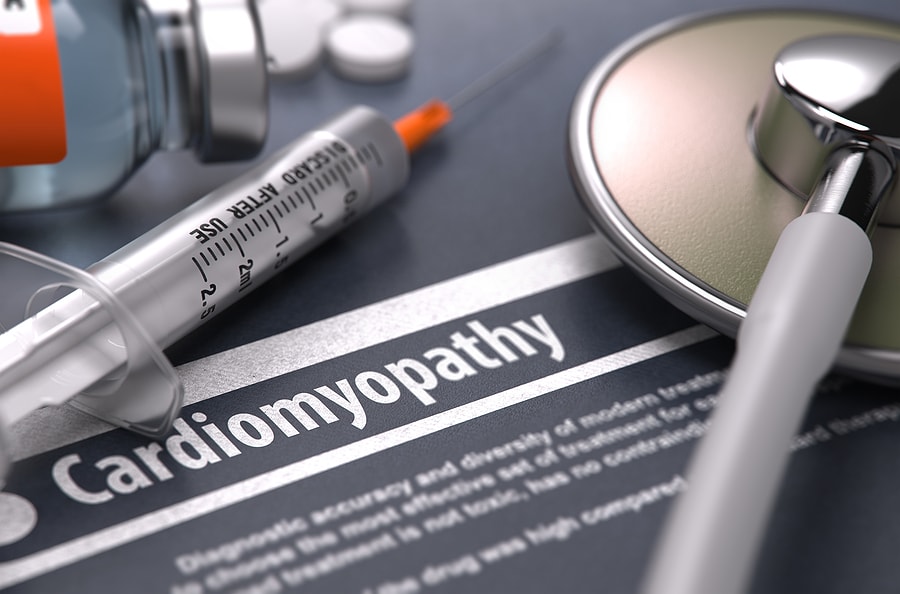Cardiomyopathy – Signs & Symptoms
Posted by: Tampa Cardio
On: October 23, 2020

Cardiomyopathy is a disease of the heart muscles which makes it more difficult for the heart to do its job and pump blood to the rest of the body. If left untreated it can lead to heart failure.
Cardiomyopathy is not genetic in nature, instead it stems from viral infections, nutritional deficiencies, undergoing chemotherapy for cancer, and unchecked fast heart rhythms. It has a variant known as stress cardiomyopathy which has been nicknamed broken heart syndrome. In this case intense emotional and physical stress can cause a rapid breakdown of the heart muscle and tissue. No matter the inception cause, cardiomyopathy can lead to heart failure.
The four main kinds of cardiomyopathy
Hypertrophic – thickened walls between the lower chambers of the heart keep it from filling up with blood normally.
Dilated – Usually begins with the muscle in the lower left chamber and stretches and this, which makes the inside larger than it should be.
Arrhythmogenic right ventricular dysplasia – scar tissue begins to replace muscle tissue in the lower right chamber of the heart.
Restrictive – Lower chambers stiffen because they are no longer muscle but scar tissue.
Symptoms and signs
- Trouble breathing and shortness of breath with even small physical exertion
- Fatigue
- Chest pain
- Dizziness
- Lightheadedness
- Fainting
- Ankle, foot, and leg swelling
- Abdominal swelling
- Irregular heartbeat
One of the first questions patients ask is what happens now that I am diagnosed?
Over time, cardiomyopathy weakens the heart muscles. It makes it difficult for it to maintain the usual electrical rhythm and to get enough blood to the other organs. This weakening can lead directly to heart valve issues, arrythmias, and even heart failure. Cardiomyopathy is classified as a terminal illness.
Management of Cardiomyopathy can make a world of difference in your quality of health
It used to be that anyone diagnosed with heart failure could live between 2 to 5 years. Now with medical advanced many patients live on another good 20 years. So please do not give up hope.
Treatment
Lifestyle changes to help manage what’s causing your cardiomyopathy.
- Healthy diet including low fat and lean meats, cut the salt, cut out alcoholic beverage or down to a bare minimum, low sugar.
- Aim for a healthy weight and get physical exercise.
- Quit smoking.
- Reduce stress.
- Get enough sleep.
- Treat any underlying conditions like high blood pressure or diabetes.
- Balance your electrolytes.
- Water pills may be suggested.
- Anticoagulants to prevent blood clots may be suggested.
- Corticosteroids may be suggested to help keep systemic inflammation in check.
Surgical and non-surgical intervention
Septal myectomy –open-heart surgery. This surgery generally is reserved for younger patients with severe symptoms and for those whose medications aren’t working. During surgery a part of the thickened septum that’s bulging into the left ventricle is removed improving blood flow.
Implants
Pacemaker A tiny in chest device which uses electrical pulses to make the heart to beat at a normal rate.
Cardiac resynchronization therapy device coordinates contractions between the heart’s left and right ventricles.
Left ventricular assist device This implantable device helps the heart pump blood to the body. An LVAD can be used for long-term therapy or as an interim treatment for those awaiting a heart transplant.
Implantable cardioverter defibrillator An ICD helps to maintain a normal heartbeat by sending an electric shock to the heart.
Heart Transplant – Replacement with a matching donor heart.
Alcohol septal ablation (nonsurgical) – ethanol is injected through a tube into the small artery that supplies blood to the area of heart muscle which is scarred. The alcohol causes these cells to die. The thickened tissue shrinks to a more normal size. This is used only in younger otherwise healthy patients.
If you are noticing any potential signs of cardiomyopathy, please call our office and schedule a visit. This is a condition where waiting could harm your health and chances of successful treatments. Give us a call at 813-975-2800 today. www.tampacardio.com.
Posted by: Tampa Cardio
On: 23/10/2020
